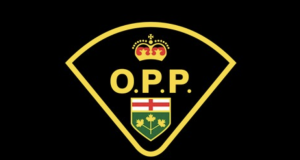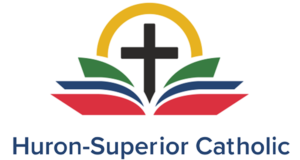The locating of unmarked graves at former Indian Residential School sites across Canada is a tragic reminder of the abuse Indigenous children suffered in these institutions. The governments of Canada and Ontario are working with Survivors, affected families, communities and Indigenous leaders as part of efforts to address historical wrongs and the lasting physical, emotional, mental and spiritual harms related to the legacy of residential schools. Part of this work includes efforts being made to locate and commemorate missing children who attended residential schools in Ontario, as well as responding to Truth and Reconciliation Commission Calls to Action 72 to 76.
Lac Seul First Nation is working with 33 affiliated Northern Ontario First Nation communities to ensure cultural and spiritual protocols are maintained in working with Survivors, intergenerational Survivors, Knowledge Keepers and First Nation leadership to address the location, documentation, mapping, maintenance, commemoration, memorialization and fieldwork investigation of burials associated with the former Pelican Lake (Pelican Falls) Residential School.
This is a community-led process which enables Lac Seul First Nation to undertake this work in their own way and at their own pace and in partnership with the 33 other First Nations involved in this initiative.
Chief Clifford Bull of the Lac Seul First Nation; the Honourable Marc Miller, Minister of Crown-Indigenous Relations; the Honourable Patty Hajdu, Minister of Indigenous Services; and the Honourable Greg Rickford, Minister of Indigenous Affairs for Ontario, announced funding of $8,743,163 to support the continuing work underway in Lac Seul First Nation.
On November 4, 2021, Crown-Indigenous Relations and Northern Affairs Canada (CIRNAC) provided an initial amount of $1,000,000 to Lac Seul First Nation, approved for fiscal year 2021–2022. For fiscal years 2021–24, CIRNAC has confirmed additional funding of $6,091,563 to support the community’s Bringing our Children Home initiative. The work includes research, engagement, commemoration, memorialization and field investigation related to the Pelican Lake (Pelican Falls) Residential school.
Indigenous Services Canada’s contribution includes a one-time funding amount of $551,600 to support mental wellness human resources associated with Bringing our Children Home. The staff hired with this funding will support various aspects of the initiative to ensure appropriate mental health supports are in place for those undertaking this difficult work in their communities. This contribution is available through health support funding that was announced in August 2021 to improve access to emotional, cultural, and mental health supports for those impacted by the ongoing investigations and confirmations of unmarked burials at the sites of former residential schools.
Ontario’s contribution of $1,100,000 in 2021–22 includes $700,000 in operating funding to support research and community engagement related to burial investigations, and $400,000 in mental health funding to provide supports to Survivors, Elders, and community members as the initiative proceeds.
Addressing the abuse suffered by Survivors, their families and communities is at the heart of reconciliation and is essential to renewing and building relationships with Indigenous Peoples, governments, and all Canadians.
“I also extend my deep gratitude to all the partners: the 33 First Nation Chiefs’ resolution authorizing Lac Seul to lead the Initiative; the Sioux Lookout First Nations Health Authority and the Northern Nishnawbe Education Council for their unwavering support administratively to ensure that the Initiative was realized and funded. The funding commitment allows us, as First Nations, to search for our missing children and to find the truth through meaningful involvement of the residential school survivors and their families. This means having an ongoing stable mental health, financial and human support system in place that will be critical as we delve into such a dark past.”, Chief Clifford Bull, Lac Seul First Nation.
- Ontario Fast-Tracks Kinross Gold’s Great Bear Project Under ‘One Project, One Process’ - February 17, 2026
- Ontario and Marten Falls First Nation Sign Historic Agreement to Unlock Ring of Fire - November 28, 2025
- Ontario Investing in Winter Roads Network - November 25, 2025
 Wawa-news.com Local and Regional News
Wawa-news.com Local and Regional News

